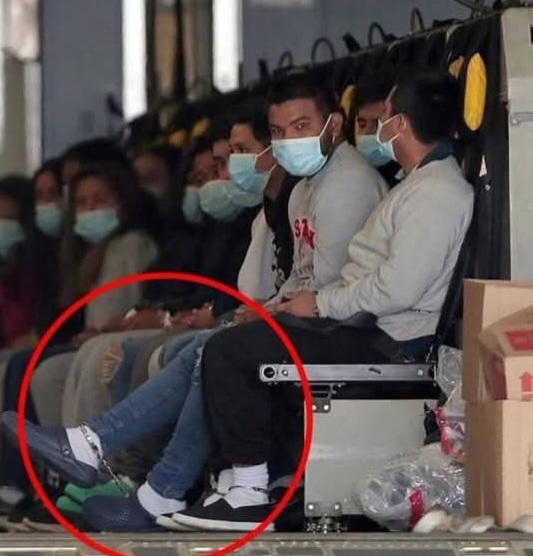New Delhi: The recent deportation of 104 Indian nationals from the United States has provoked a firestorm of criticism and political upheaval in India.
Reports indicate that these individuals were subjected to inhumane treatment during their deportation, including being handcuffed and shackled throughout the journey.
This incident has not only drawn widespread condemnation but has also intensified scrutiny of both U.S. immigration policies and the Indian government's response.
U.S. Immigration Laws and Deportation Procedures
Under U.S. law, individuals who enter the country illegally or violate the terms of their visas are subject to deportation.
The Illegal Immigration Reform and Immigrant Responsibility Act of 1996 (IIRIRA) strengthened U.S. immigration laws, adding penalties for undocumented immigrants and expediting the removal process.
Typically, the deportation process involves a hearing before an immigration judge; however, expedited removal procedures allow for quicker deportations without such hearings in certain circumstances.
Allegations of Inhumane Treatment
The deported Indian nationals have reported being subjected to degrading treatment during their removal.
One deportee, Jaspal Singh, recounted that they were informed of their deportation only mid-flight and were shackled and handcuffed during the journey.
Such treatment has been criticized as contravening international human rights standards and diplomatic norms.
Political Fallout in India
The incident has led to significant political turmoil in India. Opposition lawmakers have disrupted parliamentary proceedings, demanding accountability from Prime Minister Narendra Modi's government.
Renuka Chowdhury of the Congress party labeled the treatment as "degrading," while Gaurav Gogoi called for a discussion on the deportation.
Opposition leader Rahul Gandhi, along with others, protested outside Parliament, criticizing the government's silence and inaction.
Government Response
India's External Affairs Minister, Subrahmanyam Jaishankar, addressed the issue, stating that the use of restraints has been U.S. practice since 2012.
He emphasized that the government is engaging with U.S. authorities to ensure that deportees are not mistreated in the future. Jaishankar also highlighted the need to address illegal migration and assured that efforts are underway to facilitate the safe and dignified return of Indian workers facing deportation.
U.S. Perspective
The U.S. Embassy in India has underscored the importance of enforcing immigration laws to maintain public safety.
A spokesperson stated, "The United States and India are committed to upholding the rule of law and ensuring the safety and security of our citizens."
The embassy also noted that the use of restraints during deportation is a standard procedure to ensure the safety of both the individuals being deported and the officers involved.
The deportation of Indian nationals from the U.S. has sparked a significant controversy, highlighting the complexities of immigration enforcement and the imperative of humane treatment.
The incident has not only strained diplomatic relations but has also led to domestic political challenges for the Modi government, with calls for greater accountability and action to protect the rights and dignity of Indian citizens abroad.









